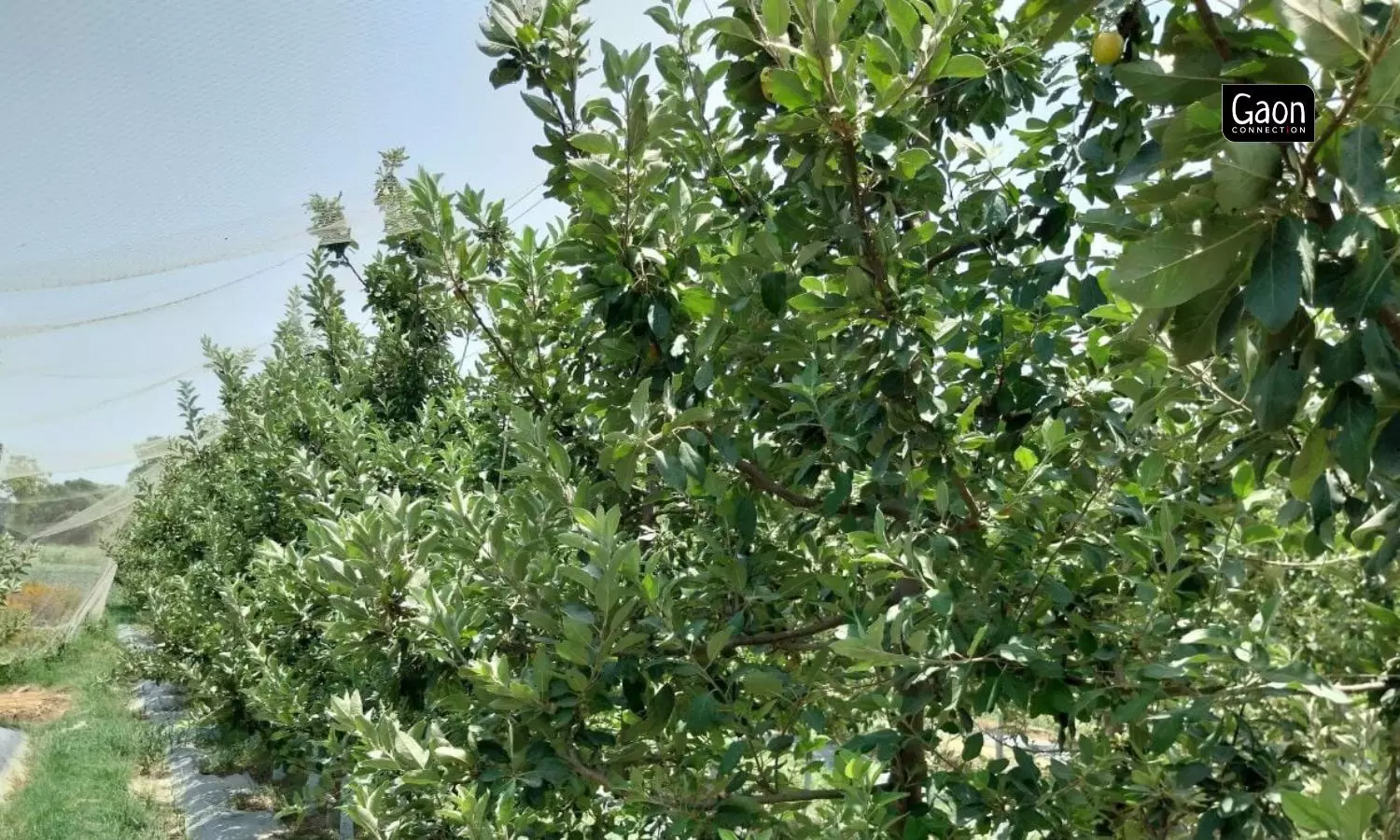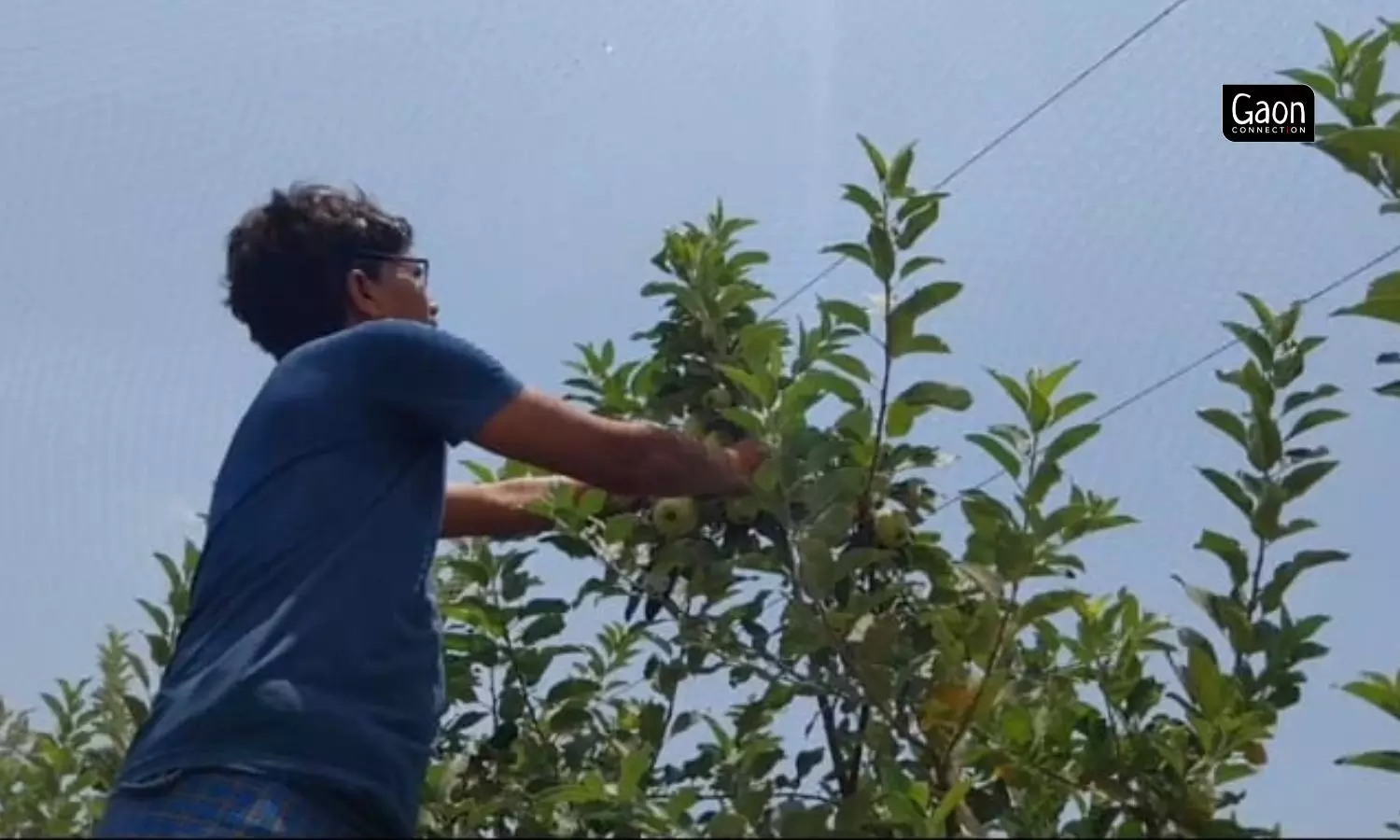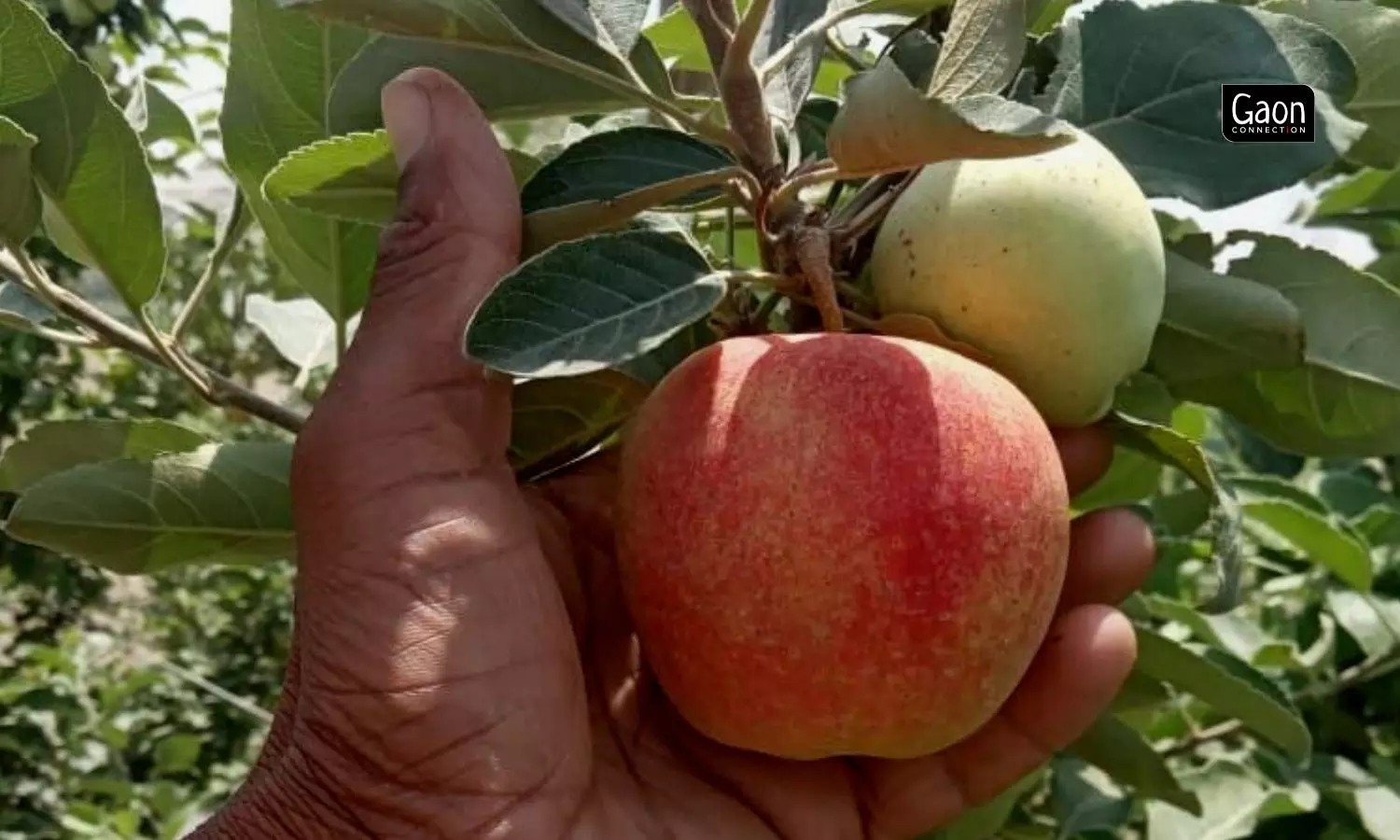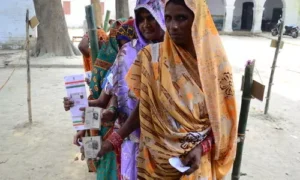Bhatpurwa village (Varanasi), Uttar Pradesh
Kashmir’s juicy and crunchy apples are world famous. Farmers in the neighbouring state of Himachal Pradesh also grow the fruit that needs a cool climate for a perfect taste.
But do you know two brothers in Varanasi, which has hot summer months, have successfully cultivated an apple variety in the plains of Uttar Pradesh?
The farmer brothers, Radheyshyam Patel and Dashrath Patel, live in Bhatpurwa village in Sevapuri Block in Varanasi district, about 40 kilometres from the district headquarters.
It was a chance encounter with videos put up on YouTube by apple farmers in Kashmir and Himachal Pradesh, which got the Patel brothers thinking, and in 2019, they actively began to plan cultivation of apples on their three acres land.

The Patel brothers had now successfully demonstrated how to grow apples in 40 degrees celsius!
“Until recently, we cultivated the traditional crops of wheat and paddy. But with unpredictable weather patterns over the years, we faced considerable losses, and our expenses were increasing and profits decreasing,” Radheysham, told Gaon Connection.
“I got in touch with some apple farmers in Himachal Pradesh and procured 500 apple saplings from them,” said Radheyshyam. He and his brother planted them on one acre of their land at a distance of three feet and in two years, they got the fruits of their labour. The brothers cultivate the HRMN-99 variety of apple.
Watch video story here:
“Each tree yielded about 15 to 20 kgs of apples. And, we were now confident enough to continue with this,” said a jubilant Radheyshyam. They asked for another 500 apple saplings, this time from Kashmir. “We planted them too and just like our earlier batch of trees, this lot also gave us about 15-20 kgs of apples each,” Dashrath told Gaon Connection.

Because the fruits are so sweet, they attract a lot of birds, and protecting the apples from the birds is a challenge who peck at them and it becomes difficult to protect the apples.
The Patel brothers had now successfully demonstrated how to grow apples in 40 degrees celsius!
“Many farmers in the neighbourhood saw our success and when they visited our farm, we would insist they taste the apples,” said Radheyshyam.
The apples gained fame and this year, they sent nearly three quintals of apples to the Rajatalab fruit mandi in Varanasi. “We got about Rs 150 per kg for the apples, and even small store owners nearby began to buy from us directly to sell in their shops,” said Dashrath.
Also Read: KCC scheme brings prosperity to horticulture farmers in Ganderbal, J&K
Growing apples in Varanasi
“Any farmer in Varanasi, Gazipur, Azamgarh, Baliya, etc, can grow apples,” Awadhesh Narayan Singh, professor of Horticulture at Udai Pratap College, Varanasi, told Gaon Connection.
He reiterated that if the farmers kept a few things in mind, they too could grow apples successfully.
Here is what the farmers need to keep in mind:
The soil should be kept moist at all times
The trees start flowering in January and by February they begin to germinate
In April the fruits are sprayed with calcium twice in order to make the fruits redder and sweeter
The apples begin to ripen in May and by June 15, they are ready to be picked, sorted and sent to the markets to sell
“The apple farmers in Himachal Pradesh and Jammu & Kashmir told us that the trees would begin to bear more fruits in the next couple of years,” said Dashrath. For now, each tree yields up to 45 apples.
According to the brothers, the Varanasi apples are sweet and their peel is thinner than their counterparts from the mountain states.
Addressing challenges
Because the fruits are so sweet, they attract a lot of birds, and protecting the apples from the birds is a challenge who peck at them and it becomes difficult to protect the apples, said Dashrath.
“We have to cover them with nets to save them from the birds and from people who help themselves to the fruits,” he smiled.

According to the brothers, the Varanasi apples are sweet and their peel is thinner than their counterparts from the mountain states.
“Keeping the soil moist in the hot climate of Varanasi is the other challenge. Every third day we have to irrigate the land,” said Radheyshyam.
Also, because theirs is the only farm where apples are grown in the region, the requisite pesticides and fertilisers are not easily available. “We have to order them from elsewhere or if anyone we know is travelling to Himachal or J&K, we ask them to bring them for us,” he said.
Also Read: Vineyards take root in Central Kashmir as apple farmers switch to grape cultivation
District administration offers support
A team of horticulture scientists visited the farm of the Patels. “What the brothers are doing is praise worthy. Our team of scientists have also been guiding them in their mission,” Jyoti Kumar Singh, district horticulture officer, told Gaon Connection.
He added that in case any other farmers showed interest in starting apple cultivation, all help would be extended to them from the horticulture department.
“We are writing to the administration to see if the apple farmers can get financial support in their endeavours. We also plan to get in touch with agencies in Himachal Pradesh, and J & K to help us set up stores in Varanasi district, where fertilisers etc., for cultivating apples will be made available,” said Jyoti Kumar Singh.
Also Read: Kashmiri farmers move from paddy fields to apple orchards for higher returns




















